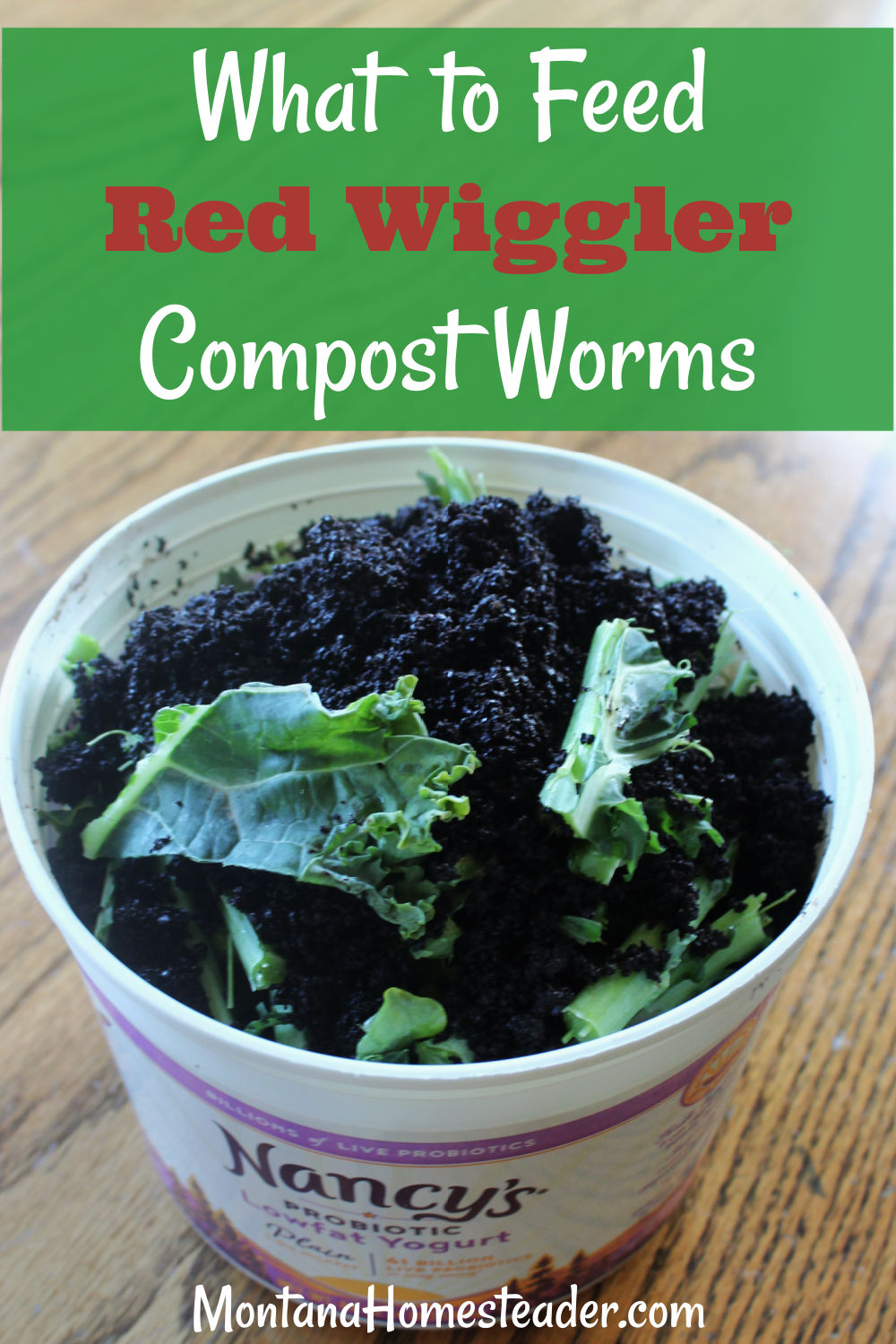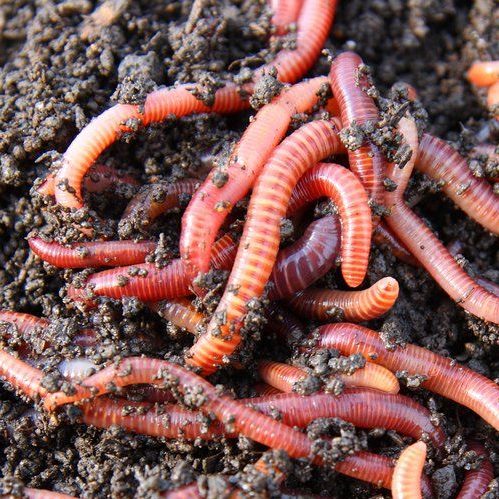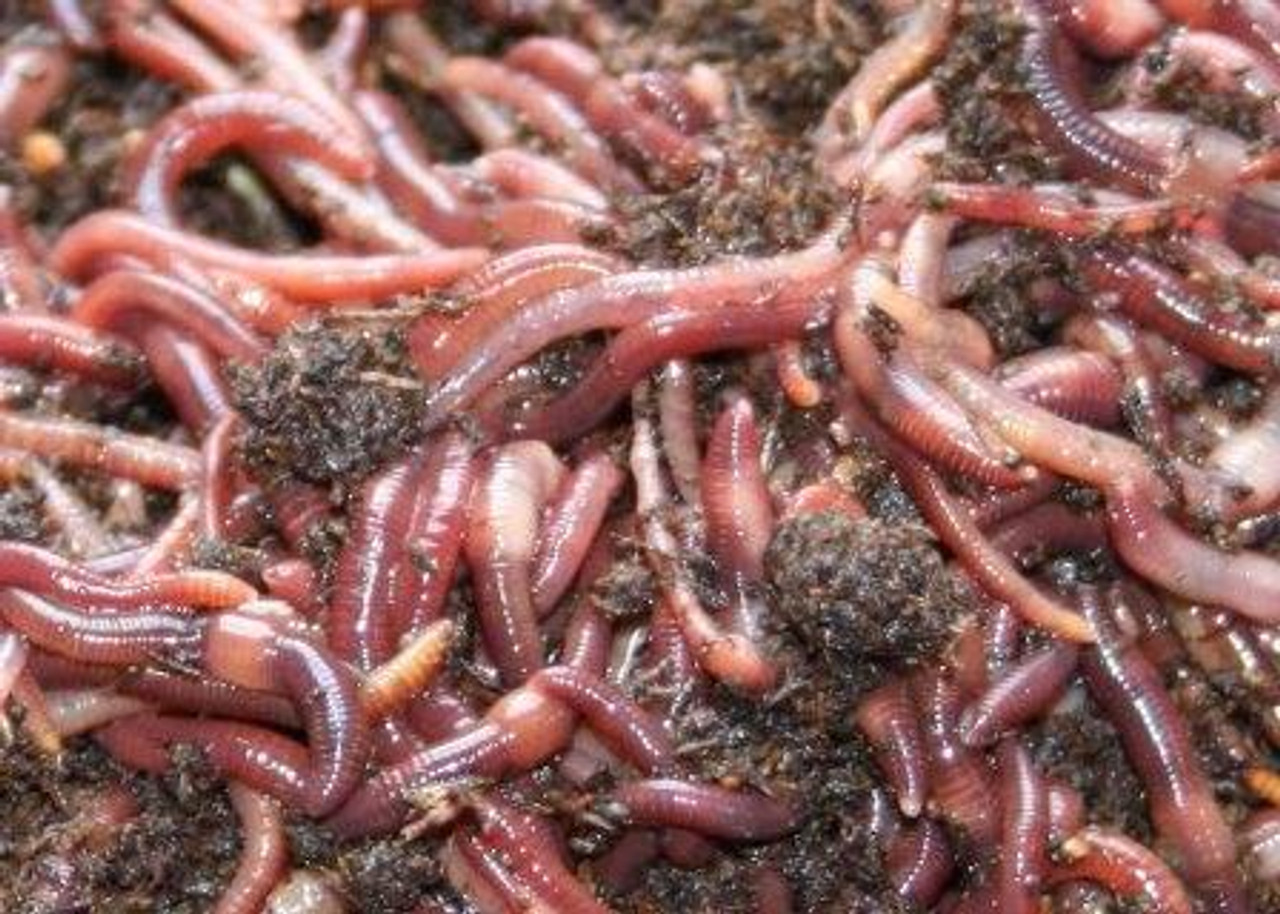Take Care of Your Lawn with the Best Products from Lake Hickory Bait
Take Care of Your Lawn with the Best Products from Lake Hickory Bait
Blog Article
Open the Secrets of Red Wigglers: Your Overview to Composting Success
The combination of red wigglers into composting practices presents a significant possibility for enhancing dirt health and wellness and advertising sustainability. Recognizing their needs and actions is essential for optimizing their possibility, from setting up an appropriate worm bin to feeding them the appropriate products.

What Are Red Wigglers?
(Red Wiggler Express)Red wigglers, scientifically referred to as Eisenia fetida, are a varieties of earthworm primarily used in composting because of their remarkable capacity to break down raw material successfully. These worms are identified by their reddish-brown coloration and a segmented body, generally determining in between 3 to 4 inches in length. Unlike various other earthworm types, red wigglers thrive in rich, natural settings, making them optimal for vermicomposting systems.
Belonging To The United States And copyright, they are commonly found in decomposing fallen leaves and garden compost piles, where they play a critical role in nutrient recycling. Their adjustment to living in a wet, cardio environment allows them to eat huge quantities of natural waste, damaging it down into nutrient-rich castings that enhance soil wellness.
Red wigglers replicate rapidly, with a solitary worm capable of creating a number of cocoons each week, each containing multiple hatchlings. Comprehending the biology and habits of red wigglers is essential for maximizing their potential in composting applications.
Benefits of Making Use Of Red Wigglers
Utilizing the power of red wigglers in composting supplies many advantages that boost dirt wellness and promote lasting waste monitoring. These impressive organisms effectively break down raw material, transforming kitchen scraps and yard waste right into nutrient-rich vermicompost. This ended up item is incredibly beneficial for plant growth, as it boosts soil structure, increases moisture retention, and boosts nutrient accessibility.

(Red Wiggler Express)Additionally, the presence of red wigglers in your composting system can speed up the composting process, producing top quality garden compost in a portion of the time contrasted to standard methods. The spreadings created by these worms are likewise including advantageous microorganisms that additionally enrich the dirt community.
Establishing Up Your Worm Container
Developing an effective worm bin is an uncomplicated process that can dramatically improve your composting initiatives. Worm containers can be made from plastic storage bins, wood boxes, or readily available worm containers.
Following, prepare the bedding material, which works as the worms' environment. A mix of shredded newspaper, cardboard, and coconut coir works well, giving a comfy environment for the worms. Goal for a bed linens depth of about 4-6 inches. Dampen the bedding lightly, ensuring it looks like a wet sponge without excess water merging near the bottom.

Feeding Your Red Wigglers
To guarantee the health and performance of your red wigglers, it is important to give them with a balanced diet plan that fulfills their dietary requirements. Red wigglers thrive on a varied range of organic products, which not only provide required nutrients but also advertise effective composting.
Start by including kitchen area scraps such as vegetable peels, fruit cores, and coffee premises. Avoid citrus fruits, onions, and garlic, as these can be destructive to worm health and wellness. Additionally, present shredded paper, cardboard, and completely dry leaves to produce a well-aerated environment.
Feeding regularity should be kept an eye on; typically, worms can eat half their body weight in food weekly. It is important to stay clear of overfeeding, as excess food can result in unpleasant odors and bring in pests. A great practice is to add food in percentages, permitting worms to refine it before presenting more.
Keeping moisture levels is additionally vital; the bed linen needs to be damp however not soaked. Be sure to on a regular basis check the temperature level and pH degrees of the bin to guarantee an optimal setting for your red wigglers, ultimately improving their composting efficiency.
Harvesting and Making Use Of Compost
An effective composting process with red wigglers culminates in the rich, dark compost referred to as vermicompost, which can substantially improve soil health and plant growth. Harvesting this nutrient-dense product commonly takes place every 3 to six months, depending on the dimension of your system and the quantity of raw material being processed.
To harvest, delicately different the compost from the worms and any undecomposed products. One efficient technique involves moving the components of the bin to one side and including fresh bed linen and food to the empty room, motivating the worms to migrate. After a couple of days, the garden compost can be collected from the contrary side.
It is essential to use vermicompost appropriately to maximize its advantages. By incorporating vermicompost right into your horticulture program, you not just recycle organic waste yet likewise develop a thriving ecological community useful site that supports sustainable horticulture practices.
Final Thought
In recap, red wigglers offer as remarkable allies in composting efforts, transforming organic waste into nutrient-rich vermicompost. By comprehending the ideal conditions for their habitat, feeding needs, and compost harvesting techniques, gardeners can boost dirt wellness and advertise plant vigor.
Report this page